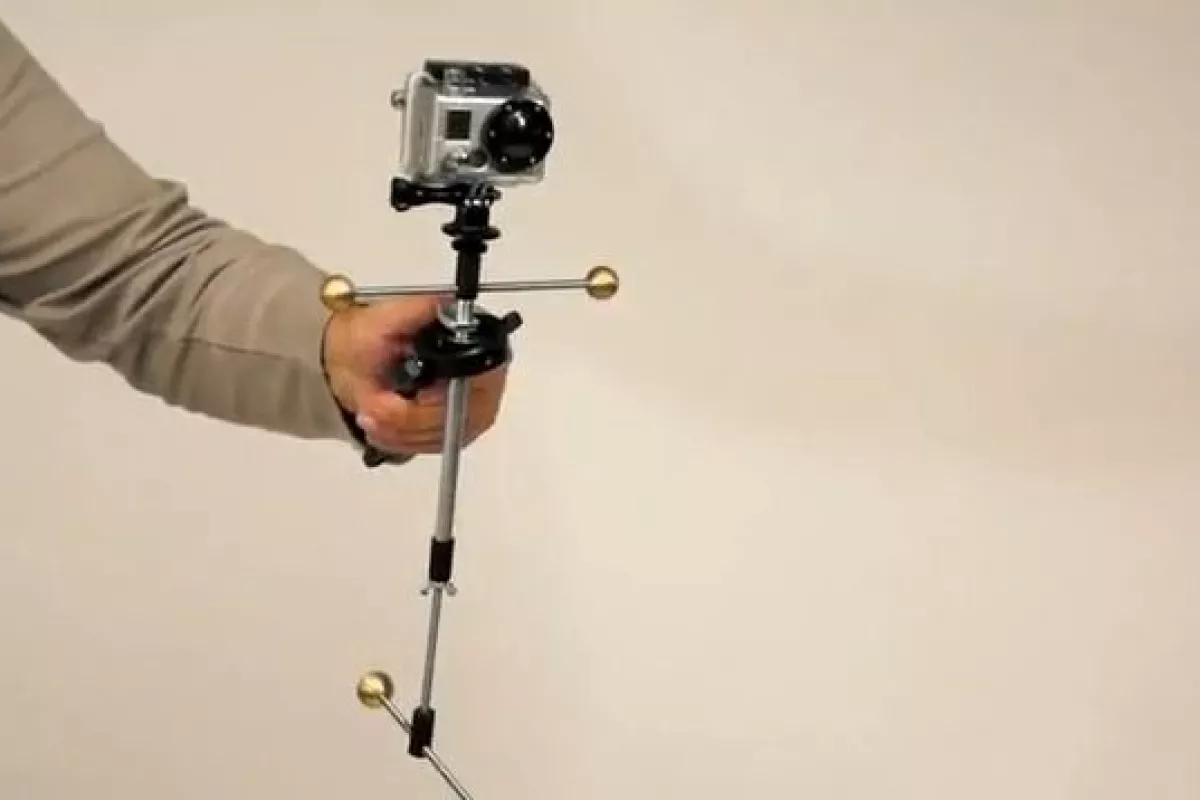The skyrocketing popularity of smartphones and compact video cameras over the past several years has resulted in a certain class of products starting to show up a lot on Kickstarter – rigs for stabilizing video shot with the devices. We’ve recently covered models such as the Circle Thing, the Stabil-i Case, and the SteadeeGo. One of the latest such products, Steadibitz’ amazingly-named MojoFloCam, looks like it does a pretty good job at smoothing out the shakes.
Unlike the curved Steadicam Smoothee and its various clones, the MojoFloCam (from hereon in to be referred to as the Mojo) is based around a straight vertical metal pole.
At the top, a smartphone or camera (weighing up to 11 oz/342 g) is attached using either the designers’ universal phone mount, or simply a threaded screw mount. Below that is a pair of horizontally-extended counterweights, followed by the gimbal-mounted handle. Finally, another couple of counterweights are located at the bottom, at an axis perpendicular to the set at the top.
The four weights are mounted on two threaded rods, allowing them to be incrementally moved to either side when initially setting the rig up for a new camera. This means that once the Mojo is balanced, the camera won’t lean to the left or right, nor pitch forward or tip back. The bottom section of the pole, containing the second set of weights, can be extended downwards to compensate for heavier cameras.

The sealed-bearing gimbal is what helps keep the user’s vertical and horizontal hand shakes from being transferred from the handle into the pole. For situations in which they wish to quickly pan or tilt the camera, however, the user can reach in and use the thumb guide (see picture above).
A pledge of US$175 will get you a Mojo with the phone mount, when and if they reach production. Footage shot using it can be seen in the pitch video below.
A beefier version, the MojoFloCam II, is apparently in the works for larger cameras.
Source: MojoFloCam via Kickstarter






